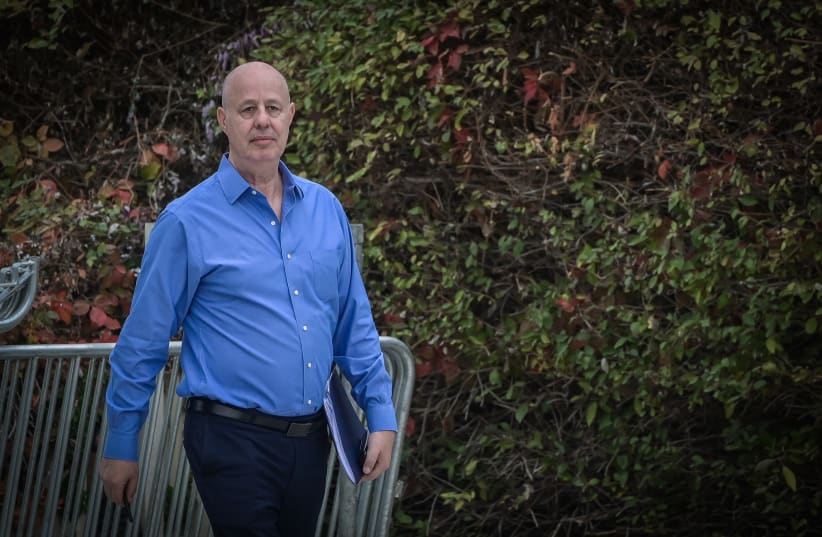TOVA HERZL

Thus, Israeli academics in fields such as the Middle East and the law have set up The Day After the War Forum. Inter alia, they organize seminars on topics such as Iraq after the fall of Saddam and how militaristic Japan became pacifist. Several weeks ago, groups of Israelis who strive to return to Gaza and rebuild the settlements that Israel left unilaterally in 2005 met to discuss how to implement their ideal.
Concern extends to individuals – recently, an American friend whose professional expertise is regional development wrote to share his detailed vision for the “day after.” It included a Marshall-type plan for Gaza, modeled on a divided Berlin after World War II.
However, three months after the outbreak of war, there has not been an official government discussion in Israel about what will happen when the war is over. After debates about the correct forum and assorted delays, a meeting of the political-security cabinet was finally convened last Thursday, but it exploded after several ministers attacked representatives of the IDF who were present at the meeting, including the chief of staff.
Israel would have significant responsibilities in Gaza
The importance of a thorough discussion and of developing a plan – which must obviously be open to change and adapt to circumstances – is self-evident. What happens the day after the war ends? Actions will be needed, and they require money. What has to be done? Who does what? What will it cost? Where will the money come from?

Israeli forces operate in the Gaza Strip on January 8, 2024.
Absent a plan, on the day after the war, Israel, with its military boots on hostile ground, will have to immediately think and plan and do, while scrambling for partners. If and until it succeeds in finding them, Israel will be exclusively responsible for everything, from ensuring clean water to paying teachers to organizing medical care for some two million people.
This cannot be an efficient operation and will not be a pretty sight, and it will come at great cost – not only financial – to Israel. Unless that is Israel’s objective, it must engage with potential players as soon as possible, and this will require heeding their concerns – we must take into account the opinions of those whom we hope will play a role.
Another important reason to develop a program and share it is to maintain current and future international support. This is not the place to discuss if Israel’s actions are proportional, but there is no question that they are severe. Unless the objective is revenge or “to teach them a lesson,” it is important to provide indications to the contrary and a sense of what will happen the “day after” the objective is achieved. What will Israel tell Secretary of State Anthony Blinken, who is expected to visit this week?
Moreover, senior members of the ruling coalition who have spoken about removing Gazans from the area are quoted extensively: a Washington Post headline on January 5 reads, “Israeli calls for Gaza’s ethnic cleansing are only getting louder.” Outsiders who are not experts on the internal politics of Israel, and have seen no evidence that Israel has other plans, could be forgiven for assuming that this is Israel’s policy. Were such positions to be perceived as Israel’s intent, it would endanger the chances of recruiting international support for the “day after.” More immediately, it would threaten any remaining support for our ongoing campaign.
In an article published in The Wall Street Journal on December 25, Prime Minister Benjamin Netanyahu laid down three conditions for peace. Hamas must be destroyed, the Gaza Strip must be demilitarized and the local population must be de-radicalized. These are all admirable goals, but who will define them, implement them, and measure them? If the “mechanism” he mentions is not an abstract concept but rather a concrete operation, what does it mean, and whom does it involve? Netanyahu stated that the Palestinian Authority (PA) as it is now, cannot replace Hamas. If not the PA, who? Saying “no” is easy, but is there a “yes”?
Israelis – and the world –want to understand Israel’s intentions for the day after. No one expects a rigid and detailed plan. A general direction will suffice, provided it is practical and not composed of slogans. Ignoring these urgent issues will not make them disappear or even shrink them.
The writer was Israel’s first ambassador to the Baltic states after the disintegration of the Soviet Union, ambassador to South Africa, and congressional liaison officer at the embassy in Washington. She is a graduate of Israel’s National Defense College.
No comments:
Post a Comment